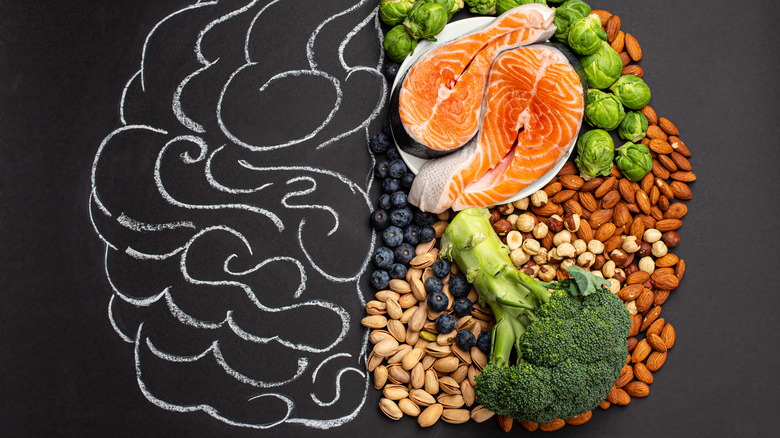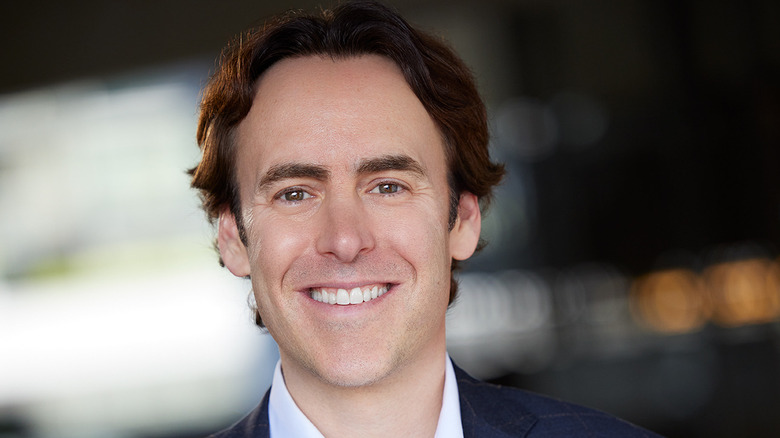Dr. Marc Milstein Explains How Diet, Exercise, And Sleep Impact Your Brain - Exclusive
Most people don't think about taking care of their brain health until they reach a certain age, usually around the time when the AARP Magazine starts arriving in the mail. But according to brain health specialist Dr. Marc Milstein, we should start thinking about our brain health long before we hit the golden years.
His years of research on how lifestyle changes impact long-term brain health have revealed that things like our diet, exercise, and sleep habits have major impacts on the brain, which means that the things we're doing right now on a daily basis are impacting our future brain health. Luckily, Milstein's research has also found that simple changes in these areas of our lives can significantly improve long-term brain health.
In an exclusive interview with Health Digest, Dr. Milstein explained the connections between diet, exercise, sleep, and brain health, and he also revealed the daily habits that will keep your brain at its best for decades to come.
Moving and eating for better brain health
Dr. Marc Milstein emphasized that one of the most important factors in long-term brain health is actually long-term heart health. He explained that blood is basically fuel for the brain, and proper blood flow to the brain relies on the heart — so eating a heart-healthy diet and improving cardiovascular health with exercise is as essential for the brain as it is for the heart. He added that diet and exercise also play major roles in regulating our sleep cycles, and better sleep leads to a better brain.
Fortunately, you don't have to make huge changes to make a huge impact. Dr. Milstein explained that simply adding some foods rich in Omega-3s to your diet and going for a daily walk can make a big difference.
"Studies suggest that walking 30 minutes a day lowers the risk of dementia by about 60%," he said. "The walking doesn't all have to be done at the same time. If you want to give your walking a bit of boost, consider walking at a faster pace for part of your walk."
Better sleep for a better brain
Though diet and exercise are essential to brain health, sleep may be the most important factor in keeping your brain at its best. Dr. Marc Milstein explained that several crucial biological processes happen while we sleep, and when we don't get enough sleep, these processes don't happen the way they need to.
"Sleep is when we remove toxins and waste that build up in our brains," he revealed. "This process essentially keeps your brain clean. Your brain is like your apartment or house; if it's messy, it's hard to be productive. The same thing happens in the brain. If we aren't getting enough quality sleep, we are building up toxins and waste that can damage the brain in the short and long term."
He added that diet, exercise, and sleep are all intricately connected, so changes to your diet and exercise regimen go a long way toward improving your sleep as well. The bottom line, Dr. Milstein emphasized, is "making changes now," because brain health starts to decline long before neurological symptoms develop — so make little changes that add up over time.
For more information about optimizing your brain health, check out Dr. Milstein's new book, "The Age-Proof Brain: New Strategies to Improve Memory, Protect Immunity, and Fight Off Dementia," available October 25.



